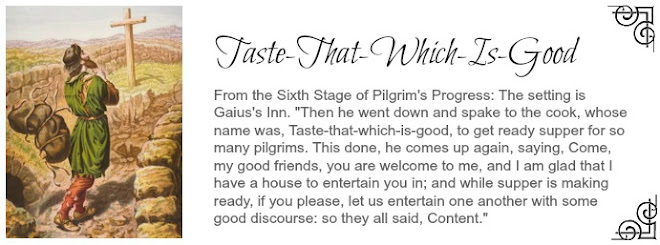
***UPDATED ****
Thought I'd add a prelude to the poem below, now that I've been reflecting on what I read, it seems appropriate to add a few thoughts that if you read it again or for the first time you may think deeper about what was written.
***THOUGHTS***
First stanza lists some amazing things, biblical events, and biblical descriptions. Things you might think odd such as living souls arising from withered bones which reminds me of Ezekiel's vison but could also apply to the widows son raised to life by Elijah and again by Elisha. Or the body returning to life after touching the bones of Elisha or Jairus's daughter raised by Jesus and Dorcas raised by Peter.
But as incredible as those first stanza things may be, the second stanza describes that which is most incredible, God manifest in the flesh.
The Fifth Stanza describes the hypostatic union, that is two distinct natures in the Person of Christ.
Consider:
1) The two natures are not mingled, confused or mixed but distinct.
2) The two natures, human and divine are separate but in separably joined.
3) Two separate but inseparably natures joined in the one person Jesus Christ our Lord.
I think I best like from this poem the personification of "nothing." Or maybe better stated, when Erskine describes man as "nothing." I thought about that and thought of four ways we could apply this concept.
1) From Nothing God made all things.
2) Apart from Christ we can do nothing and are nothing.
3) Man himself is as nothing, and more so when compared to the God who is all.
4) The eternal Son of God took upon himself our nature, nothings that we are.
Also note, in the 8th stanza, Arian refers to an ancient but still present heresy that denys the full deity of Jesus Christ.
The Last two stanza's make for beautiful contrast. What Man did in rebellion, what God has graciously done and for his own glory.
SO update complete, read again, or read for the first time, may it work to your spiritual profit.
Here is sweet heart music this Christmas Morning. Read it yourself, read it again, then read it once more to a friend.
I borrowed my sweet Poem-Girl's header as fitting in our lowly state to commemorate the glorious incarnation of the most high God - how most dramatic the mystery from before creations dawn until the eternal living forever sing his song.
The Mystery of the Redeemer's incarnation, or God manifested in the flesh, 1Ti 3:16, John 1:14
WHAT though the waters, struck with dread,
Rise up and form a pyramid?
Though floods should gush from rocks and stones,
Or living souls from wither'd bones?
To hear of an incarnate God,
Is yet more wonderful and odd;
Or to behold how God most high
Could in our nature breathe and die.
What though the bright angelic forms
Degraded were to crawling worms?
These creatures were but creatures still,
Transform'd at their Creators will.
Though creatures change a thousand ways,
It cannot such amazement raise,
Nor such a scene as this display,
Th' eternal Word a Piece of Clay.
God-man a strange contexture fix'd,
Yet nor confused nor commix'd;
Yet still a myst'ry great and fresh,
A Spirit infinite made flesh.
What though, when nothing heard his call,
Nothing obey'd and brought forth all?
What though he nothing's brood maintain,
Or all annihilate again?
Let nothing into being pass,
Or back again to what it was?
But lo! The God of beings here,
As turn'd to nothing doth appear.
All Heavn''s astonish'd at his form,
The mighty God became a worm.
Down Arian pride to him shall bow,
He's Jesus and JEHOVAH too.
The Sum of Redemption
With haughty mind to Godhead man aspir'd,
With loving mind our manhood God desir'd:
Man was by pride from place of pleasure chas'd,
God man by love in greater pleasure plac'd.
Man seeking to ascend procur'd our fall,
God yielding to descend remov'd our thrall:
The Judge was cast, the guilty to acquit,
The Sun defac'd, to lend the shades the light.
Gospel Sonnets, ...Incarnation, Ralph Erskine, Page 257.
Merry Christmas to All and Glory to God in the Highest.





